
Asturleonese is a Romance language spoken primarily in northwestern Spain, namely in the historical regions and Spain's modern-day autonomous communities of Asturias, northwestern Castile and León and Cantabria, and also in a small neighbouring area of Portugal. The name of the language is largely uncommon among its native speakers, as it forms a dialect continuum of mutually intelligible varieties and therefore it is primarily referred to by various regional glossonyms like Leonese, Cantabrian, Asturian or Mirandese. Extremaduran is sometimes included as well. Asturleonese has been classified by UNESCO as an endangered language, as Asturian is being increasingly replaced by Spanish.

El Sueño de Morfeo was a Spanish band from Asturias. Their musical style is pop rock fused with Celtic, folk rock and indie pop elements. They represented Spain at Eurovision Song Contest 2013 with the song "Contigo hasta el final ".
León Klimovsky was an Argentine film director, screenwriter and film producer.

Narciso Ibáñez Menta was a Spanish theatre, film, and television actor.
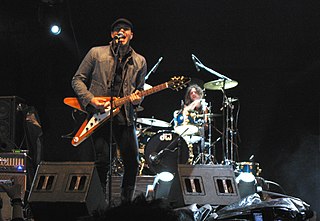
Catupecu Machu is an Argentine rock band, usually classified as within Rock en Español. Its current band members are Fernando Ruiz Díaz on vocals and guitar; Charlie Noguera on bass guitar; Agustín Rocino and Julian Gondell on drums; and Macabre González on keyboards and samplers.
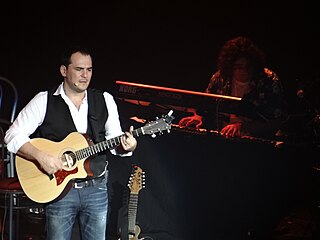
Ismael Serrano is a singer-songwriter and guitarist from Spain, popular in Spain and Latin America, known for his often political lyrics and eclectic musical influences. During his creative career he has been influenced by other Spanish singer-songwriters such as Joaquín Sabina, Joan Manuel Serrat and the Cuban Silvio Rodríguez amongst others. His music also shows influences from renowned poets such as Luis García Montero and Mario Benedetti.

Asturian is a West Iberian Romance language spoken in the Principality of Asturias, Spain. Asturian is part of a wider linguistic group, the Asturleonese languages. The number of speakers is estimated at 100,000 (native) and 450,000. The dialects of the Astur-Leonese language family are traditionally classified in three groups: Western, Central, and Eastern. For historical and demographic reasons, the standard is based on Central Asturian. Asturian has a distinct grammar, dictionary, and orthography. It is regulated by the Academy of the Asturian Language. Although it is not an official language of Spain it is protected under the Statute of Autonomy of Asturias and is an elective language in schools. For much of its history, the language has been ignored or "subjected to repeated challenges to its status as a language variety" due to its lack of official status.
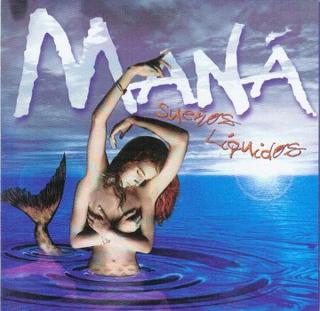
Sueños Líquidos is the fifth studio album recorded by Mexican rock band Maná, It was released by WEA Latina on October 14, 1997. After its release for the first time in over 36 countries across the globe, the band began to receive wide international attention, especially in Spain and the U.S., where the album sold over one million copies. This album was born of the desire to create an environment where water, a vital element, has an important presence. Because of this, the record was recorded in the coastal city of Puerto Vallarta, an important location in the creative atlas of Maná. Sueños Líquidos garnered Maná its first Grammy Award, for Best Latin Rock/Alternative Performance. The album was given a Premio Lo Nuestro award for "Pop Album of the Year" which was shared with Shakira for "¿Dónde están los ladrones?. It was released on DVD-Audio format in 2001. As of 2002, it sold 3.5 millions of copies.
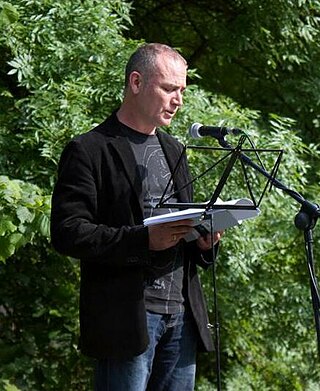
Xuan Bello Fernán is a Spanish poet and one of the best-known contemporary Asturian writers.
Tuilla (Spanish) or Tiuya (Asturian) is a small parish and former mining village in the municipality of Langreo, Asturias, North Spain. It is located to the southeast of the center of the city of Oviedo, near La Felguera-Langreo, and had a population of 1,491 in 2009. In the past Tuilla was a significant in the mining industry, with the coal mines of El Terrerón, Mosquitera and La Braña.
Amparo Arozamena was a Mexican actress of film and television, best known for her character roles in the 1960s. During the same decade, she became most noted for her role of "Doña Chole" in the Telesistema Mexicano sitcom Los Beverly de Peralvillo (1968–1973). Arozamena had been acting since her early teens and had her first feature film released at the age of thirteen.

Los Número Uno: Éxitos 1968-2003 (2003) is the twentieth album and second compilation album by Mexican rock and blues band El Tri. Going back to the end of the Sixties when the band was only a trio known as Three Souls in my Mind the compilation take a couple of songs 30 years old as well as hits up to the latest albums.
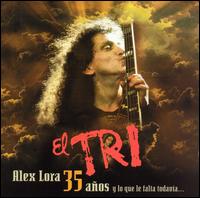
Alex Lora: 35 Años y lo Que le Falta Todavía is the twenty-second album and fifth live album by Mexican rock and blues band El Tri. It was released in 2004.

Fulgencio Argüelles, is a Spanish writer and psychologist.
The Asturian derby, is the name given to any association football match contested between Sporting de Gijón and Real Oviedo, the two biggest clubs in Asturias. The rivalry is well-known as one of the strongest, most heated in Spanish football.

María Cotiello Pérez is a Spanish actress. She is also a visible campaigner for the officialization of the asturian language in Asturias.
José Ángel Fernández Villa is a Spanish trade unionist and politician, known for having been secretary general of the union Union of Mineworkers of Asturias for 34 years.

Ramón Lage is a Spanish musician, best known for his work as vocalist of power/progressive metal band Avalanch. Currently, he is the vocalist of DELALMA.
The COVID-19 pandemic in Asturias was part of the Spanish outbreak of the worldwide COVID-19 pandemic.

The Mining Basins is the name traditionally given to the historical territory located in the Central Coal Basin of the Principality of Asturias. It corresponds to one of the most heavily industrialized areas in Spain, especially linked to coal and ferrous metallurgy.













